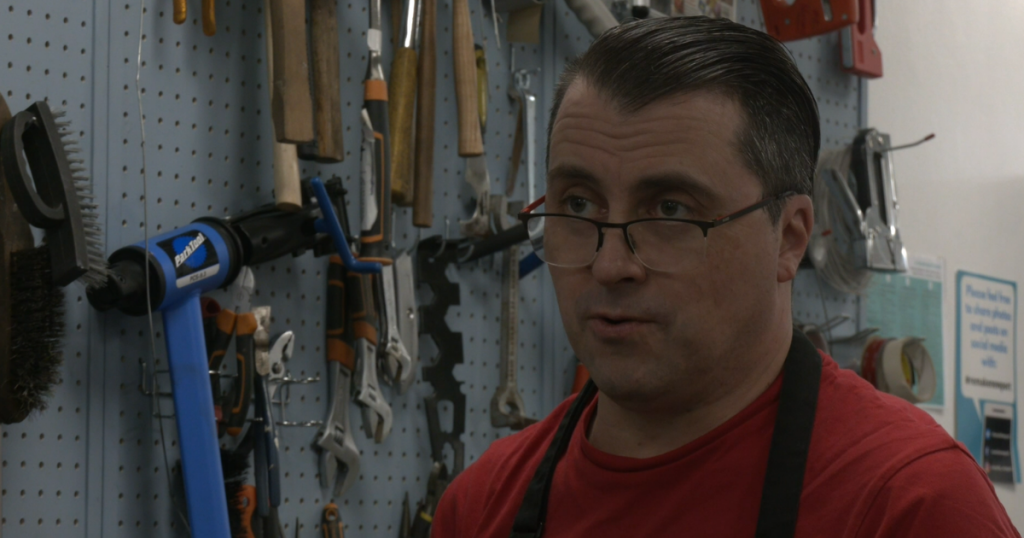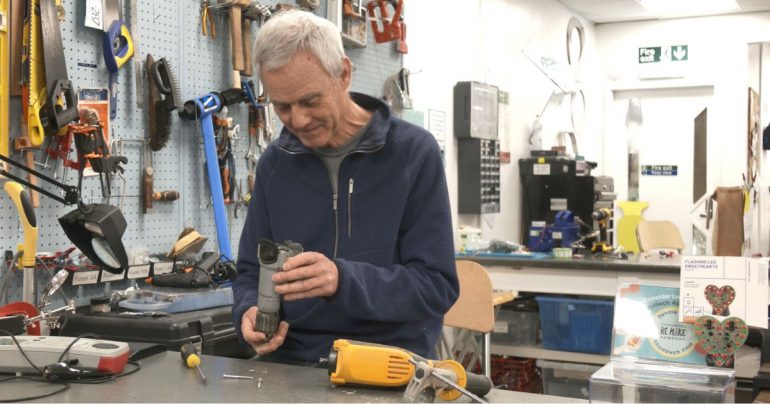A scheme that gives money to community and environmental projects near landfill sites could be cut by almost two thirds, prompting criticism by those who have benefitted from it.
The Welsh Government scheme, known as the Landfill Disposals Tax Community Scheme (LDTCS) is a grant funding programme which aims to offset some of the negative impacts of living near a landfill site or waste transfer station through local projects.
One hundred and forty communities in Wales benefitted from the scheme last year.
But in its recent draft budget, the Welsh Government proposed cutting the funding by up to £1m, describing it as a “very difficult but considered decision”.
In 2022/23, the scheme engaged more than 95,000 volunteers and community members in Wales, and saw 30 projects awarded with grant money.
It also saved more than 48 tonnes of greenhouse gas emissions and stopped 327 tonnes of waste from going to landfill.

The RE:MAKE repair café in Newport was funded by the scheme and repairs broken things to prevent them from being thrown away.
Phillip, the manager of RE:MAKE said: “What the landfill tax allowed us to do is take a large pot of money and put it towards the good use of the community in recycling, repairing and saving people from buying things”.
He said cuts to the scheme will mean people will be “denied the opportunity of doing good.”
They not only repair broken things but also teach people the skills to be able to fix items.
RE:MAKE also run a Library of Things so people can rent equipment instead of buying things that would be thrown away after a few uses.
“Without the Landfills Disposals Tax Communities Scheme people will be denied the opportunity of doing good […] we couldn’t have done it without the help we had”
Phillip, RE:MAKE, Newport
What’s happening to the funding from the scheme?
In The Welsh Government’s draft budget for 2024 to 2025 they allocated a proposed £500,000 to the project.
This is two thirds less than was previously designated in the 2023 to 2024 budget when the scheme was allocated £1,500,000.
A Welsh Government spokesperson told CJS News: “Our budget position for 2024/25 is exceptionally challenging. This has meant having to take some very difficult but considered decisions.
“Unfortunately, reducing the budget for the Landfill Disposals Tax Community Scheme is one of several such decisions. However, this is not the end of the programme and we look forward to seeing continued delivery and success in the future.”
CJS News asked if the scheme will reopen, however the Welsh Government did not give a clear response.
The plans have been described as “counter productive”.
Hedd Thomas from Wales Council for Voluntary Action, who are contracted by the government to distribute funds from the scheme, said: ” We really do believe that this is counter productive both for local communities and to the Welsh Government’s overall ambitions to create a greener and fairer Wales”.
They said that in 2023, around 80 groups and projects have benefitted within the last year alone.
The Ruperra Conservation Trust are a small local charity based in Caerphilly that brought 21 acres of woodland in 2019.
They were granted £49,000 from the Landfill Disposal Tax Communities Scheme and have since been able to launch a number of initiatives and environmental work such as planting tree saplnings, buy dormouse nest boxes and create a pond for great crested newts.
They have also trained volunteers to remove invasive, non-native species in the woodland.
They questioned how the cuts to the scheme could be justified.

Sue Price from Ruperra Conservation Trust said: “We are alarmed at the possibility of this funding being reduced by the Welsh Government at a time when funding is becoming harder to source”.
“We find it hard to understand how this can be justified given the Welsh Government’s Well-being of Future Generations aims, which our grants are targeted towards fulfilling. The availability of such grants are a lifeline when larger amounts are needed for projects such as ours.”
Another organisation which benefits from the scheme, Wildlife Trusts Wales, wrote a letter on the 30th January to the Minister for Climate Change expressing concerns about the proposed lack of funding.
They said: “There are already concerns of the lack of funds that contributes towards the Welsh Government’s promise to address the climate and nature emergencies.”
They also noted how projects funded by the scheme have helped Wales move towards the Well-being of Future Generations (Wales) Act 2015.
This Act is aimed at improving the social, economic, environmental and cultural well-being of Wales.
The final Budget for 2024/2025 is expected to be published at the end of February.

